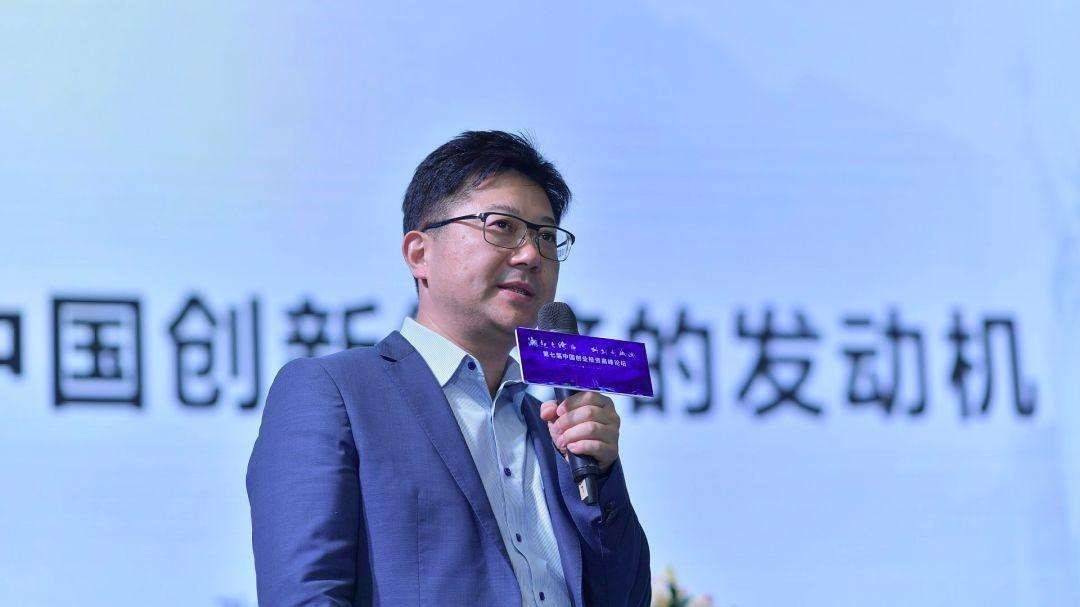2018.01.19 Zhang Wei Views:
China has grown into the world’s second largest economy over the past 40 years. In this period, many Chinese technology companies represented by Huawei and Alibaba have become world-class corporations, which provide robust support for economic transformation and upgrading. At present, China is equipped with three conditions for extensive tech innovation: market, capital and talents. Huge opportunities for technological innovation are emerging in China.

China has grown into the world’s second largest economy over the past 40 years. In this period, many Chinese technology companies represented by Huawei and Alibaba have become world-class corporations, which provide robust support for economic transformation and upgrading. At present, China is equipped with three conditions for extensive tech innovation: market, capital and talents. Huge opportunities for technological innovation are emerging in China.
As early as two years ago, we have found that AI was truly given new development opportunities accompanied by the rise of big data technology. It is the technological strength and development stage of China and the United States that are almost similar in AI, which gives us the advantageous opportunity to enter the track first. At the beginning of 2017, we invested in SenseTime, a leading AI unicorn in China or even the world.
Through the new energy automobile vehicle (NEV) industry chain, we can see the broad development space of this industry. Data shows that from 2011 to 2016, China's NEV sales increased from less than 5,000 to 510,000, while car owners rose from 10,000 to 1 million. China's NEV will enter a period of rapid growth after 2020. The production and sales volume of NEV in 2025 is expected to reach 8 million. In 2030, the number is expected to reach 40% of total vehicle sales, about 15 million.
China’s electronic information technology(EIT) ranks top in the world, but still has obvious shortcomings in anatomy, such as the integrated circuit(IC) industry. Fortunately, we can also see the country's strategic layout in the meantime. After many years of continuous large-scale investment in China, Chinese display manufacturer such as BOE(000725.SH) and China Star Optoelectronics have begun to occupy leading positions in the world since 2017. We believe that the IC industry is emerging like the display industry.
As Huawei CEO Ren Zhengfei said, in the era of big opportunities, don't be opportunistic. We have witnessed that Huawei has become a world-class enterprise in communications after decades of continuous investment. And we believe that China's science and technology will rise further along with the strong momentum of China's economic transformation and in terms of overall national strength.
In the next decade, a number of technologically innovative companies will emerge in China. What we investors can do is grow with these companies.
Written by Zhang Wei, the original article was published in China Securities Times. Read the full article in Chinese, please check :http://stonevc.com/news_view.aspx?TypeId=5&Id=669&Fid=t2:5:2
The year 2019 marks the fortieth anniversary of China’s Reform &Opening-Up, once again, we meet at the turning point of history. What’s the next step for the game, is there any clear guidance? The answer is affirmative.
Our country is enjoying a good momentum of development, which does not come from the Washington Consensus nor the Beijing Consensus. China’s experience has proved that both the visible hand and the invisible hand are crucial: the visible hand, stands for the government-led reform, and would yield benefits for reform and opening up; the invisible hand, stands for the Marginal Power represented by the private sector, and would improve economic efficiency and tax collection, create jobs and employment opportunities.
Provided that we want to protect and expand the benefits form reform, three simple but mandatory agreements are to be made and followed: No.1 Private ownership must be recognized, protected and treated equally with public ownership constitutionally, both ownerships are scared and inviolable;No.2 Make further clarification of the principal position of market economy, “deepen economic system reform by centering on the decisive role of the market in allocating resources”, as President Xi addressed in the third Plenary Session of the 18th CPC Central Committee;No.3 Implement the guiding principles of “comprehensively promoting law-based governance” of the fourth plenum. The rule of law is essential for economic growth, irreplaceable to protect private ownership, and necessary to encourage innovation and entrepreneurship.
Above are three rules for us to avoid falling into the Middle-income Trap. Assuming that we are breaking systematic barriers to private enterprises’ participation in market economy, and boosting innovation and entrepreneurship of our society, then we are heading towards a promoting direction. We are marching in the path of light, regardless of the ups and downs of Sino-US relationship, the drop in GDP growth rate, or the monetary policy.
These principals also apply on knowing how better to run a business: don’t be hedged by rules and regulations at the beginning, pay more attention to your survival, and you’ll learn more when you start your second business.
For many years, Huawei has been the only Chinese company on the list of the Top 50 R&D Spenders. Regardless of the economy and its income, what Huawei has been doing is investing in its future, dedicated to R&D, continuously and resolutely. This provisional work underscores Huawei’s accomplishments, making Huawei anindustry leader.
So, there are standard answers on how to run a company,which could be summarized as concentration and professional dedication, continuous investment on innovation and trying harder in R&D. Entrepreneurship is also important, every single company needs entrepreneurs to push aside all obstacles and difficulties, to implement strategies and ideas. We, as investors, are destined to look for such outstanding entrepreneurs and their companies, invest in them and partner with them.
At this key point of history, a country, a company, or asingle individual, will all need to find the right path. Four decades after the Reform and Opening-up, it’s time to learn from our experience and stop “wadding across
